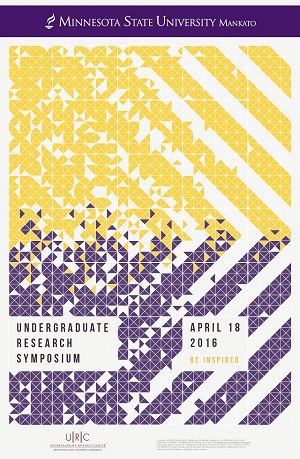Truthfulness and Deception: How Do People Tell the Difference?
Location
CSU Ballroom
Start Date
18-4-2016 2:00 PM
End Date
18-4-2016 3:00 PM
Student's Major
Psychology
Student's College
Social and Behavioral Sciences
Mentor's Name
Emily Stark
Mentor's Department
Psychology
Mentor's College
Social and Behavioral Sciences
Description
Does increased eye contact mean one is telling the truth? Do people telling lies give out more irrelevant information? Our research examines questions like these and whether people use these ideas in order to decipher between a truth and a lie. Our research is based on an article by Albrechtson et al. (2009), in which participants watched either short clips, acting upon their intuition, or long clips, acting upon their logical reasoning. Their results found that participants more accurately detected lies when relying upon their intuition. Our current study examines the cues our participants used when deciding whether a person was telling a truth or a lie, and it looked at how their intuition affects their response. We anticipated that participants will be more accurate at detecting lies when relying more on their intuition compared to relying on logical reasoning. To test our hypothesis, we had participants watch 8 short video clips of people telling stories, either a truth or a lie. For each clip participants rated: how much they trust and like the person in the clip; whether the story was a truth or lie; and what cues helped them make the decision. After rating the clips, participants took personality scale questionnaires and a test of beliefs about deception cues. Data collection is ongoing and our result will determine whether participants are able to accurately detect lies, and whether intuition is more accurate than logical reasoning. It will also determine how the ability to detect lies relates to personality.
Truthfulness and Deception: How Do People Tell the Difference?
CSU Ballroom
Does increased eye contact mean one is telling the truth? Do people telling lies give out more irrelevant information? Our research examines questions like these and whether people use these ideas in order to decipher between a truth and a lie. Our research is based on an article by Albrechtson et al. (2009), in which participants watched either short clips, acting upon their intuition, or long clips, acting upon their logical reasoning. Their results found that participants more accurately detected lies when relying upon their intuition. Our current study examines the cues our participants used when deciding whether a person was telling a truth or a lie, and it looked at how their intuition affects their response. We anticipated that participants will be more accurate at detecting lies when relying more on their intuition compared to relying on logical reasoning. To test our hypothesis, we had participants watch 8 short video clips of people telling stories, either a truth or a lie. For each clip participants rated: how much they trust and like the person in the clip; whether the story was a truth or lie; and what cues helped them make the decision. After rating the clips, participants took personality scale questionnaires and a test of beliefs about deception cues. Data collection is ongoing and our result will determine whether participants are able to accurately detect lies, and whether intuition is more accurate than logical reasoning. It will also determine how the ability to detect lies relates to personality.
Recommended Citation
Hakinson, Katelyn and Megan Lahti. "Truthfulness and Deception: How Do People Tell the Difference?." Undergraduate Research Symposium, Mankato, MN, April 18, 2016.
https://cornerstone.lib.mnsu.edu/urs/2016/poster-session-B/30




